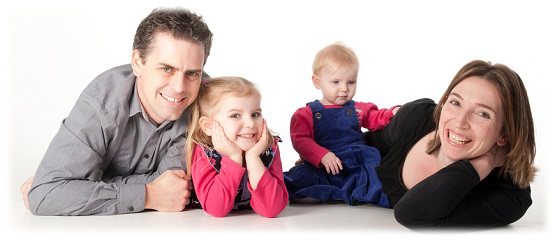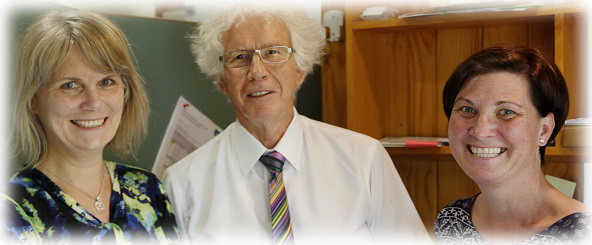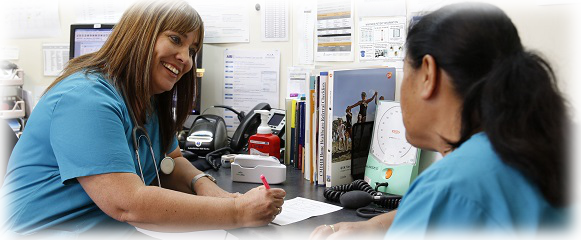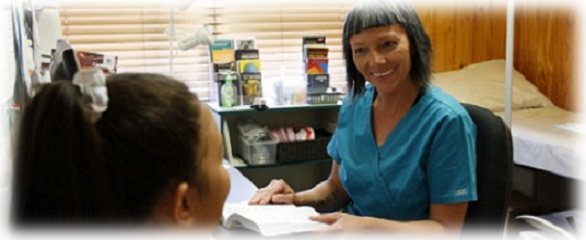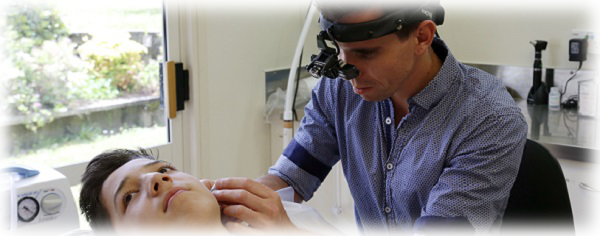February 2015
A warm New Year's welcome to the Millhouse Community and to other readers, January has come and gone and the summer holidays are now becoming memories. The early morning road congestion with schools restarting reminds me this will be a busy year for most of us. It will be one of new challenges and opportunities.
A number have enthusiastically told me they now reside in, or are soon to move to, the newly opened Bruce McLaren Retirement Village, a pleasant addition to the Howick landscape. Others have chosen to relocate to rural surroundings for more relaxed living as well as realising significant capital gains in the current property market.
Maintaining health is a challenge too, so include simple strategies I have discussed to improve well-being - maintain a positive outlook, have fun, eat nutritious meals, perform regular vigorous exercise and obtain adequate vitamin D through sunlight exposure or supplementation.
Millhouse News - 2015 Medical Team Changes
Dr Viji joined us before Xmas, and as I previously mentioned brings expertise in skin conditions with advanced skills in the removal of skin cancers and will soon also perform vasectomy sterilisation. She also has an interest in women's health and is fluent in English, Tamil and Malayalam. Dr Viji is working Monday, Wednesday and Friday.
Dr Therese has now recommenced and is a skilled family practitioner who has a special focus in women's and children's health. She is also fluent in English and Arabic. Dr Therese is working Tuesday and Thursday, complementing Dr Viji's days.
Drs Viji and Therese are both at
130 Millhouse with Dr Aileen.
Practice Nurses
We have been privileged to have Practice Nurse Fang providing temporary cover and her enthusiasm has been inspiring. We will soon welcome Practice Nurse Jacqui to the medical team. Jacqui has a special interest in diabetes self-management which will be an asset with her involvement in the ARI programme.
At-Risk-Individual programme (ARI)
Enrolment in the Practice Nurse-led ARI programme continues. Patients have welcomed the opportunity to explore improved lifestyle choices, through eating nutritious meals, undertaking regular exercise, sharing life's stresses and accessing community and specialist support. The addition of Practice Nurse Jacqui will provide opportunity through the ARI programme to encourage the many prediabetics to adopt healthy lifestyle and decrease disease risk (prediabetics are those who have an hba1c between 45 and 49; greater than 50 means you already have diabetes. Both groups have an increased risk of cancer, heart disease, arthritis and Alzheimer disease.)
Appointment cancellation
Recently we have had more cancellations of doctor appointments at too late a time to allow their reallocation to other needy persons. Please give at least 2 hours' notice if you cannot attend. We are sympathetic if exceptional circumstances prevail, but if only minutes' notice is given, your Doctor may invoice you for the consultation.
Patients who Do Not Arrive for their appointments on more than two occasions will be charged for the consultation.
15 min appointments
A consultation is for 15 minutes. Please decide the two most important issues you would like discussed with your doctor, and if time permits the lesser problems may be attended to. If a consultation continues beyond 30min an additional fee may be charged by your doctor.
E-appointments
Don't forget E-appointments which are being used more and more. It is an easy and convenient way to book an appointment on line at www.millhousemedical.co.nz allowing you to select your doctor and the appointment time.
Spice Medicine
A spice is a dried seed, fruit, bark or flower of a plant or herb that is used in small quantities to flavour, colour or preserve food and many spices are used in traditional medicine. Spices were the most valuable items of trade from ancient times through to the medieval period and only in recent years has modern medicine rediscovered their importance in preventing illness and treating disease.
In this newsletter I briefly discuss the importance of TURMERIC in health and its use in disease.
In this issue...
- Winter is coming
- Doctor skills
- Practice Nurse Jacqui and the ARI (AT RISK INDIVIDUALS) programme
- Appointments are 15 minutes
- Problem of late cancellation of appointments
...and this month Dr Ric continues the series
on "Spices as Medicine"
Known Turmeric
medicinal effects include:
- Anti-inflammation reducing pain and swelling
- Anti-platelet activity thinning the blood
- Anti-oxidant activity for cell preservation
- Lowers blood cholesterol & triglyceride
- Improves diabetes and reduces glycation protein ageing – organ damage
- Lessens gut spasm, is liver protective, assists stomach ulcer healing
- Anti-bacterial, anti-fungal & antiviral action useful in treating infection - Anti-cancer effect protects against DNA gene damage, increases glutathione detox action, anti-inflammatory also action potentiates chemo and radiation therapy, reduces pre-cancer lesions
Turmeric
In India the spice Turmeric is known as the 'kitchen queen' used by everyone in cooking and especially in curries. Marco Polo on his Asian adventure in 1280 AD discovered the spice and brought turmeric back to Europe but long before this it was already established as a medicinal herb in India's Ayurvedic ancient healing practices and in Traditional Chinese Medicine.
Traditionally, turmeric was, and is, used to purify the blood, treat stomach, digestive and liver conditions, as well as assisting in the resolution of skin and lung disease. It is administered to wounds to stop bleeding and prevent infection, applied to joint sprains to reduce swelling and used locally by Indian women to reduce hair growth.
Turmeric belongs to the ginger family and its fleshy roots contain 3-5 % essential oils with curcuminoid compounds that give the golden yellow colour and healing value. Curcumin is the most studied curcuminoid compound but there are numerous others, many still to be fully understood.
Turmeric the anti-inflammatory
In 2012 Doctors Chandran and Goel in a pilot study randomised 45 rheumatoid arthritis patients into three groups who were given either curcumin 500mg twice daily, diclofenac (Voltaren) 50mg twice daily, or curcumin and diclofenac together. After 8 weeks the curcumin-only group demonstrated the greatest improvement in symptoms with no adverse side effects (Reference 1). Turmeric contains more than two dozen anti-inflammatory compounds that inhibit and selectively block inflammatory cell pathways (cyclooxygenase COX-2 & lipoxygenase LOX enzymes, leukotrienes, cytokines, and the powerful Tumour Necrosis Factor/TNF-alpha) lessening disease processes.
I recommend patients with inflammatory conditions such as arthritis, inflammatory bowel disease & colitis, asthma, diabetes, and heart disease consider taking turmeric or curcumin daily.
Turmeric in Alzheimer Disease
The population of India consumes large amounts of turmeric and has a much lower age-related incidence of Alzheimer Disease (AD) compared with Western countries. Professor Gregory Cole of the UCLA Alzheimer Research Centre USA observed the brains of older Indians at autopsy were tinged yellow with turmeric and appeared more youthful. With his colleagues he demonstrated that turmeric and curcumin cross the blood brain barrier, slow brain-aging in 'Alzheimer-bred' rats and extend life expectancy in laboratory mice by 10-12%. Turmeric contains a number of natural agents that block the formation of beta-amyloid, the substance responsible for the plaques that slowly obstruct cerebral function in AD.
In 2012, Japanese neurologists from Kariya Toyota Hospital reported remarkable improvement of three patients with Alzheimer Disease who took 1gm turmeric daily for one year. (Reference 2)
Turmeric in cancer
Turmeric is a powerful cancer preventative agent and is able to inhibit pre-cancer lesions. Curcumin is able to target multiple sites in cancer growth - neutralising cancer inducing agents, reducing inflammation, normalising cell pathways, blocking tumour invasion and inhibiting cancer blood supply. A number of trials have demonstrated curcumin increases the effectiveness of chemo and radiation therapy.
For cancer prevention - curcumin 500mg daily. Cancer treatment - curcumin 2000-8000mg daily taken in 3 divided doses. (1 tablespoon turmeric (6.8gm) = 230mg curcumin)
Using Turmeric
Simple tea: Bring 4 cups water to boil add 1 tsp ground turmeric powder, simmer 10 min then strain with fine sieve, add honey or lemon to taste – add milk or coconut milk to improve bioavailability - ginger powder may be added
Dr Sanjay Gupta's Tea:
1 cup almond milk or coconut milk
½ tsp turmeric powder
1 tsp cinnamon
1 tsp honey
¼ tsp ginger
Directions -bring the almond milk to boil, remove from heat, add spices & honey - stir. Sip slowly before sleep.
Turmeric for colds
½ tsp powder with vegetable/grapefruit juice or coconut milk 3x day
Add turmeric to food – 1 tsp minced fresh peeled root or 1/8 tsp or more of powder
Omelettes, scrambles, fritters, soups smoothies, rice & tofu dishes
Toss with roast vegetables, Rub on meat, chicken & fish, Pinch in salad dressings & blend with melted butter. to pour over cooked vegetables
Turmeric is fat soluble which slows gut absorption. However assimilation is dramatically improved when turmeric is heated in the presence of fat or oil (coconut, olive, avocado, butter) and black pepper (piperine) is also added.
Use turmeric as a sprinkle over avocado, in salad dressings, as a rub combined with olive/coconut oil on meats or tossed with roast vegetables and of course in curries. Learn how to cook curries
Yours in good health, Dr Richard J Coleman
Get pdf for this newsletter
References:
1. Binu Chandran and Ajay Goel: A Randomized, Pilot Study to Assess the Efficacy and Safety of Curcumin in Patients with Active Rheumatoid Arthritis. Phytotherapy Research 26 ( 11) pp 1719–1725, Nov 2012.
2. Nozomi Hishikawa, Yoriko Takahashi, Yoshinobu Amakusa, Yuhei Tanno, Yoshitake Tuji, Hisayoshi Niwa, Nobuyuki Murakami, U. K. Krishna: Effects of turmeric on Alzheimer's disease with behavioral and psychological symptoms of dementia. Ayu 33(4) pp 499–504, Oct-Dec 2012.


